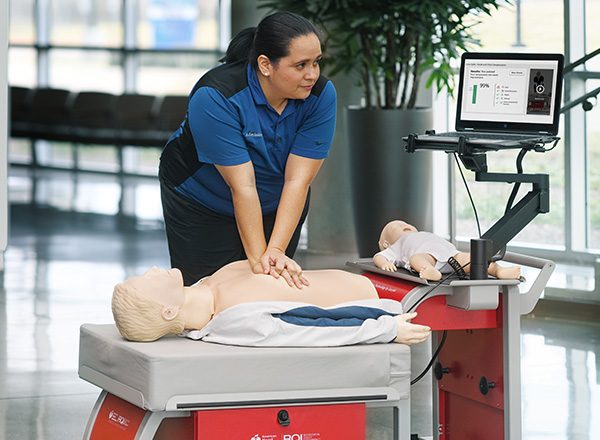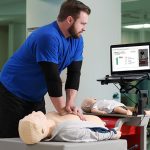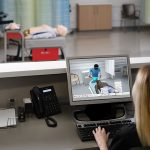Every day, you work to provide the best quality and safest patient care, and to help your organization to run more smoothly and efficiently. Everything you do should align with these critical priorities, including your choice of a CPR education program for your organization. Science-based resuscitation education that has been proven to build competence in high-quality CPR is essential to saving lives of victims of cardiac arrest.
Hands down, the American Heart Association (AHA) is the leader in resuscitation education science. As a founding member council of the International Liaison Committee on Resuscitation (ILCOR) and the only United States member council, the AHA helps analyze global resuscitation research and develop treatment recommendations in their Guidelines for CPR & Emergency Cardiovascular Care.
When translating that science into their BLS, ACLS and PALS programs, and to even further ensure the success of resuscitation education, the AHA published the first-ever Resuscitation Education Scientific Statement, providing educational strategies to achieve resuscitation competence through mastery learning. These strategies, applied to the instructional design of AHA programs, increase true mastery of resuscitation knowledge and skills, leading to the delivery of high-quality CPR in a cardiac arrest emergency.
Alternative CPR training programs do not follow resuscitation science or educational science, and include options that only confuse the organizations and educators who are working to improve quality and survival outcomes, with issues including:
- No established frequency in training
- Critically important content can be skipped
- Skills assessments with no objective measurement of components of high-quality CPR
Resuscitation education developed by the AHA and Laerdal Medical and delivered by RQI Partners, like HeartCode® and RQI®, truly develops high-quality resuscitation competence within an organization like no other program can.
Please join my webinar on Tuesday, August 13 to learn more about structuring a program for competence: Resuscitation Competence: An Algorithm for Saving Lives.









